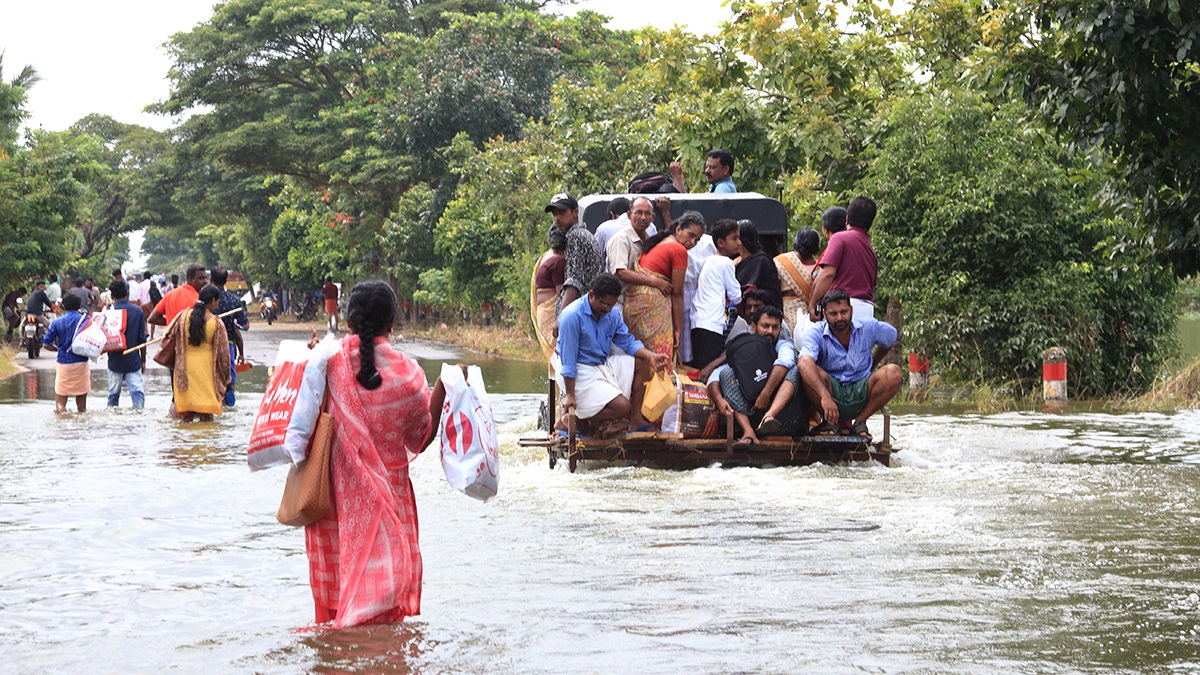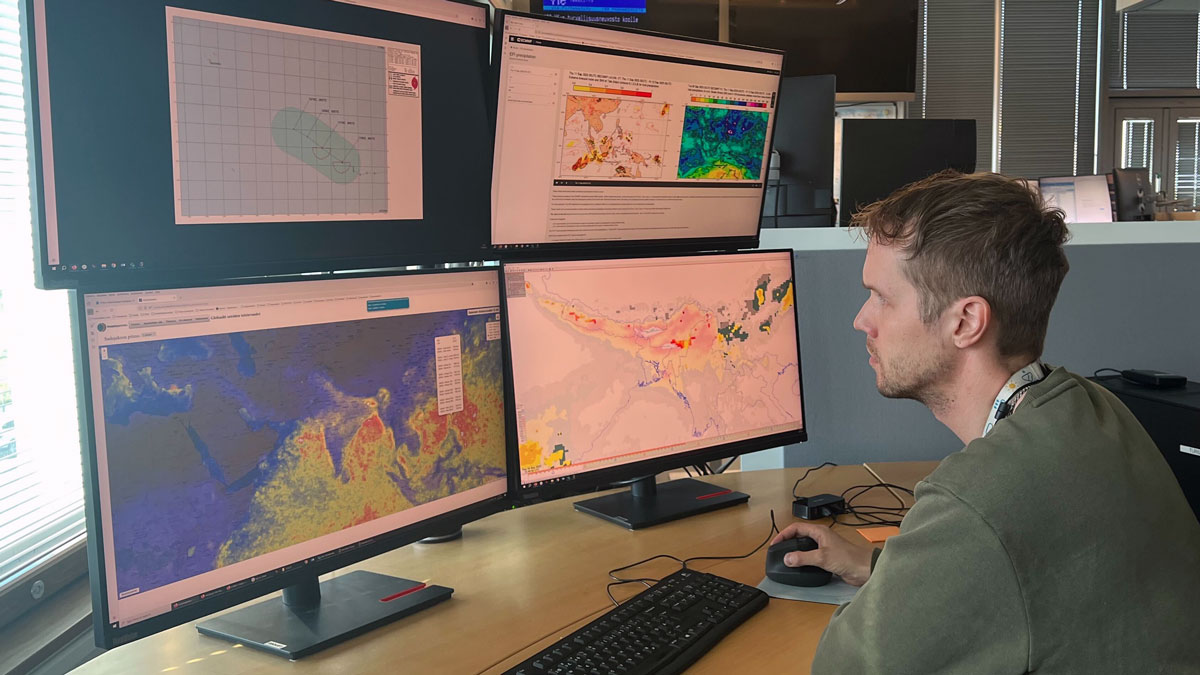Wildfires in Spain and typhoons in the Philippines – the role of the Finnish Meteorological Institute in global crisis preparedness

Aristotle is an expert network funded by the European Commission, designed to support the European Union Civil Protection Mechanism. The European Commission’s Emergency Response Coordination Centre (ERCC) manages the mechanism and is responsible for organizing assistance in various disasters, both within the EU and worldwide. The Coordination Centre operates as part of the civil protection service, with the primary aim of protecting people and property.
The Finnish Meteorological Institute (FMI) participates in the Aristotle network together with its European sister meteorological institutes, focusing in particular on forecasting hazardous weather. Participating expert organizations take turns being responsible for their respective areas of expertise: for example, the French national meteorological service Météo-France and Portugal’s IPMA often act as wildfire leads, while Iceland frequently takes responsibility for monitoring volcanic eruptions.
FMI’s weather service is responsible for Aristotle reporting during its designated duty week, which occurs on average once a month.
Assessing combined impacts of natural phenomena at the core of operations
The Aristotle network focuses on six main threats: hazardous weather, floods, wildfires, tsunamis, earthquakes, and volcanic eruptions. A distinctive feature of the system is the simultaneous consideration of natural disasters, allowing for better assessment of their possible combined impacts. For example, in a region that has experienced an earthquake, rescue operations may at the same time be hampered by a heatwave or heavy rainfall.
In a region that has experienced an earthquake, rescue operations may at the same time be hampered by a heatwave or heavy rainfall.
The vulnerability and resilience of affected countries to hazardous natural phenomena are key themes when experts assess possible impacts and resulting damage. Preparing the reports therefore requires not only modeling and analyzing weather and natural events, but also an understanding of regional contexts. A country’s resilience can often be influenced by previous weather conditions – for instance, when several tropical cyclones pass over the same area, such as northern Philippines, within a short period of time.
To prepare the reports, experts on different phenomena hold video conferences, where they jointly consider possible parallel impacts for each target area and produce a unified situation assessment. In particular, the flood group and the hazardous weather group work in close communication with one another.
Aristotle reports serve as a trigger for emergency assistance
The Aristotle service operates with two main models. Urgent reporting is activated when a significant natural event, such as a tropical cyclone, requires rapid analysis. In such cases, a rapid report is delivered to the Emergency Response Coordination Centre within three hours of the alert, at any time of day.
Routine monitoring, in turn, produces situation reports three working days a week. These reports include all phenomena that have the potential to escalate to a level where affected countries may request external humanitarian assistance to cope with the disaster. Usually, the target countries’ resilience to natural hazards is low or temporarily weakened for some reason, but in some cases large-scale wildfires in Southern Europe or Canada have also required activation of support mechanisms. Sweden, for example, received assistance through the Civil Protection Mechanism to combat its devastating wildfires in 2018.
An ERCC duty officer gathers information on natural hazards threatening lives and property using reports from Aristotle as a source, and informs the Commission when necessary. The Commission then contacts local offices, technical experts, and the EU delegation in the affected countries. This chain of command may ultimately lead to the activation of the support mechanism. Finland also participates in delivering assistance when needed, and can, for example, send firefighting equipment to the affected area.
Since 2017, Aristotle has produced around 200 rapid reports and about 600 monitoring reports. Today, EU member states themselves can also request an urgent report from Aristotle via the ERCC to improve preparedness for natural disasters.

LUOVA provides information to national authorities
The Finnish Meteorological Institute also monitors natural disasters and extreme weather phenomena in Finland – this information is shared with other authorities via the LUOVA system. Duty meteorologists track storms, thunderstorms, floods, snowfalls, wildfires, and sea level variations in Finland. Globally, the LUOVA system also monitors volcanic eruptions, earthquakes, tropical cyclones, and tsunamis. In addition, the system covers space weather – solar storms that, at their worst, can cause serious disruptions in communication and navigation systems.
LUOVA warnings are also produced in collaboration: the Finnish Meteorological Institute is responsible within LUOVA for weather phenomena and sea level warnings, the University of Helsinki’s Institute of Seismology provides information on earthquakes, and the Finnish Environment Institute is responsible for warnings related to river and lake floods.
Through LUOVA, authorities receive as accurate and timely information and impact assessments as possible regarding disruptive events that may threaten public safety or the functioning of critical infrastructure. Based on this information, authorities can optimize their preparedness and issue warnings to the public.
The operating principle has much in common with the Aristotle network, and both operate from the Finnish Meteorological Institute’s weather service around the clock, every day of the year.
Henri Nyman and Petteri Pyykkö
The authors are meteorologists at the Finnish Meteorological Institute, who also serve as Aristotle duty officers.
